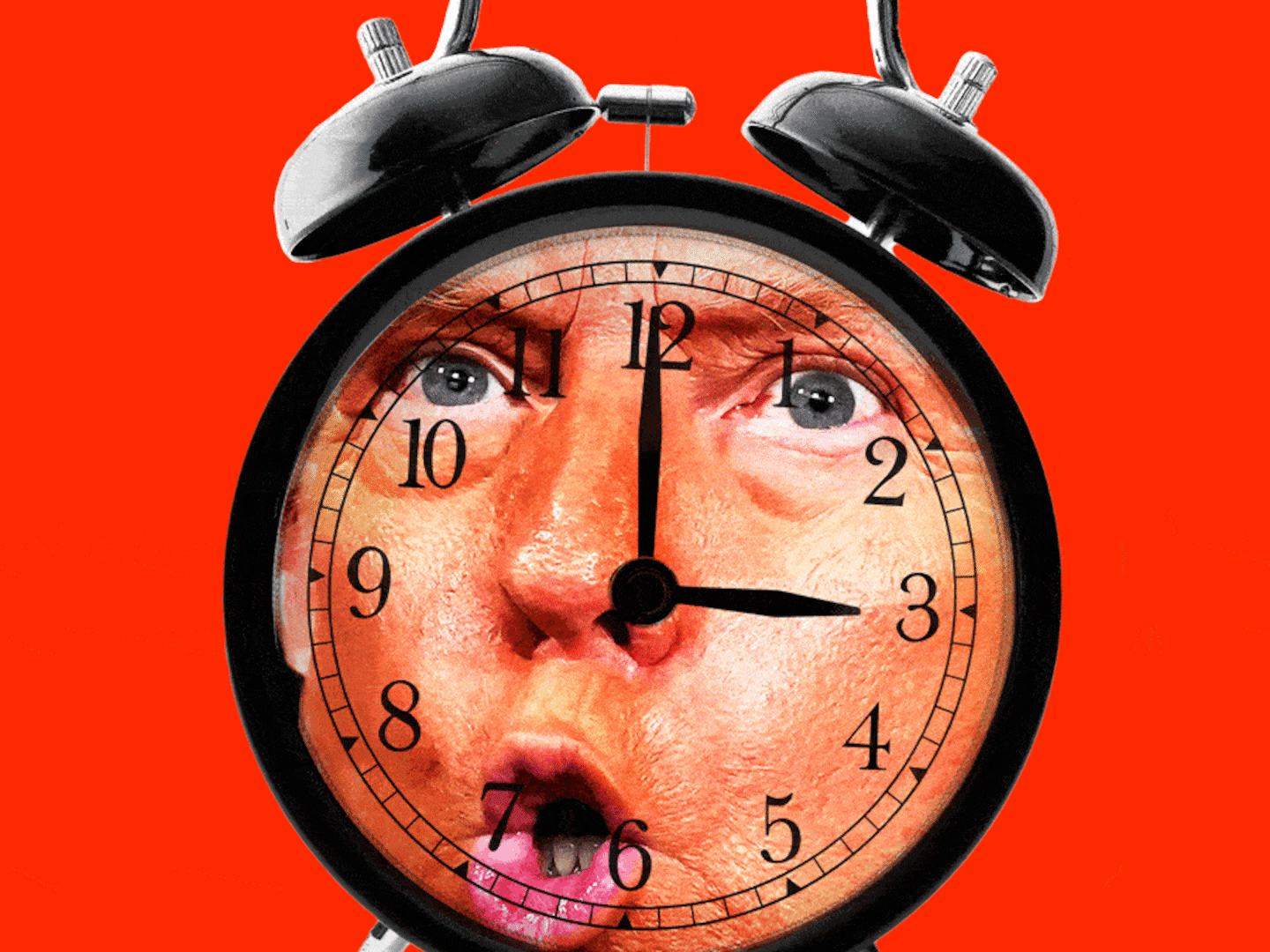This week, in the shocking aftermath of two more horrifying mass shootings in El Paso, Texas, and Dayton, Ohio, that left at least 31 people dead, former Arkansas Governor Mike Huckabee insisted in a blog post that “the lack of thought and prayers is probably the single biggest factor in what is behind [the shootings].”
Huckabee’s statement is a familiar refrain in the aftermath of traumatic acts of violence. The phrase “thoughts and prayers” is frequently used by public officials in the wake of national tragedies, including acts of terrorism and mass shootings. In the wake of Sandy Hook, the Las Vegas shooting, and the Parkland shooting, numerous politicians expressed their heartfelt “thoughts and prayers” to widespread mockery. When those in a position to effect changes in public policy instead offer common gestures of condolence, they appear guilty of legislative indifference. As a Daily News headline roared in 2015 “God isn’t fixing this… cowards who could truly end gun scourge, continue to hide behind meaningless platitudes.” At this juncture the hashtag #ThoughtsAndPrayers has descended into self-parody.
In responding to this line of criticism, Republican politicians and media sites have often understood #ThoughtsAndPrayers as a form of anti-Christian or anti-religious bias. Prayer is a sincere religious practice that for members of many religious groups has the ability to effect real world changes in the lives of the living. Mike Huckabee’s blog post invokes just this argument. He writes that he “will keep ignoring the scoffers, and saying prayers and urging others to do the same.”
Certainly for Christians—the group that Huckabee and the overwhelming majority of politicians represent—prayer can be powerful, especially in times of crisis. In the Bible, Daniel’s prayers in the lion’s den lead to his deliverance: he walks free and his accusers are ripped to shreds. Roman Catholics believe that praying for the dead (and, in fact, the prayers of the holy dead) can help bring about a person’s salvation. The miraculous power of prayer is something that Christians believe is real, and that belief should be respected even by those who do not share those beliefs. And, for the non-religious, there’s some data that praying is psychologically beneficial for people.
This does not mean that, for committed Christians, thoughts and prayers are sufficient. The idea that prayer demands action has a biblical basis. We tend to assume that characters who pray also take steps to have their requests met. Dr. Meghan Henning, an assistant professor of religious studies at the University of Dayton, Ohio, said, “When we read the story of Hannah praying for a child are we to assume that she stopped having sex?” Similarly most Christians (though not all) combine prayer with medical treatment when ill. When it comes to rectifying injustice and evil in the world the Epistle of James quite explicitly demands that we act: “What good is it, my brothers and sisters, if you say you have faith but does not have works? Can that faith save him? If a brother or sister is naked and lacks daily food, and one of you says to them, ‘Go in peace, keep warm and eat your fill,’ and yet do not supply their bodily needs, what is the good of that?” (James 2:14-16).
Both Pope Francis and the Dalai Lama agree. In a Sunday Angelus message in 2013, Francis said “Prayer that doesn't lead to concrete action toward our brothers is a fruitless and incomplete prayer… Prayer and action must always be profoundly united.” Just last year the Dalai Lama tweeted that although he is a Buddhist monk he is “skeptical that prayers alone will achieve world peace. We need instead to be enthusiastic and self-confident in taking action.”
The necessity of both prayer and action are recognized by pro-life Christians who both pray to end abortion and seek to re-legislate Roe v. Wade. As John Fea wrote this week, the thoughts and prayers excuse simply would not fly in the case of abortion. Thus, the question is not, “are thoughts and prayers sufficient?” but rather “when does the loss of human life necessitate action?” Surely, for the conscientious Christian, the answer has to be “whenever it occurs.”
The truth of the matter is that even if miracles happen and prayer has miraculous (as well as psychological) benefits, it is simply bad theology to suggest that prayer alone can solve the problem of gun control. Petitionary prayers (prayers that ask for things) do not always deliver what a person wants. There are countless people who have faithfully prayed to God and not received the thing that they asked for. This isn’t just historically true, it’s theologically true. There are all number of reasons this is the case. In the first place, God might have other plans. So we might “ask” but not “receive” in the way that we expect or want. Arguably the best example of this is Jesus himself. According to the Gospel of Mark, in the Garden of Gethsemane, the night before his death, Jesus kneels down to pray and asks his “Abba (Father)” to allow “the cup” (i.e. death) to pass from him. It is what he wants, but Jesus recognizes that the outcome will be what his father wants. It’s an example of obedience. but it’s also a story about a frustrated request in which through prayer Jesus discerned what he was supposed to do. It’s an important example because otherwise people who pray and don’t receive help are led to believe that they are spiritually failing.
Then, there’s the question of free will. According to most Christian theology, God has given humanity free will to decide for ourselves. Thus, when it comes to human violence, prayer cannot reliably act as mind control that forces others to behave in a certain way. Professor Yujin Nagasawa, a philosopher at the University of Birmingham, U.K., and author of Miracles: A Very Short Introduction, told The Daily Beast “Many theists think that God gave us free will because freedom is intrinsically good. It seems unreasonable then to expect that God would answer petitionary prayers, especially if they require intervention in human affairs.”
In addition there’s a practical problem. Nagasawa told me, “Answering petitionary prayers regularly would also create more problems than it would solve. This point is illustrated in Jim Carrey's film Bruce Almighty, in which almighty Bruce tries to make people happy by answering “Yes” to all petitionary prayers. On the contrary, he causes all sorts of chaos in the world.” Even our pop culture sees the problem here.
Acknowledging that people don’t always get what they ask for doesn’t discredit Christianity or the power of prayer. But to say that prayer alone can eliminate violence is to wildly misunderstand how prayer works and hurtful to those who experience violence. As Henning told me, “the Santa Claus theology of prayer is not Christian theology.”
Huckabee, however, goes one step further than suggesting that prayers can fix the problem; he suggests that it’s the lack of religiosity in the country that is at the root of gun violence. The lack of prayer, he says, is “single biggest factor” behind the shootings.
The solution for Huckabee is to return to a point in time when people were more religious. Mass shootings will never stop, the former candidate for the Republican presidential nomination said, until “kids are brought up once again to believe that we are all made in the image of God, that life is sacred and superficial differences like skin color are meaningless.”
The use of the word “again” here is telling. Huckabee is suggesting that we return to a time in American history when people were more religious and prayer played a more central role in society. A time when, supposedly, life was good and America was Christian. He’s not alone in expressing this desire; others have suggested that prayer in politics is “American.” And to be sure, in the past politicians did more regularly speak about their faith and prayer was more central part of public life. It is unclear if these were less violent times, however. The prayers of American soldiers did not protect them on the battlefields of the Revolutionary or Civil Wars just as they did not prevent European Christians from the plague in the medieval period.
If Huckabee’s rather simplistic and distorted view of history was not already apparent, there is also the fact that he includes the idea that we should raise children “again to believe that… differences like skin color are meaningless.” To which hallowed prayer-friendly period in our history does Huckabee refer? This country is still plagued by racially motivated violence; it is demonstrably less safe for people of color, than for white people; and it is led by a president whose statements—most Americans agree—encourage racism. And yet, the 21st century is still the safest period of American history for people of color. There’s no utopian period to which African-Americans can return. To suggest that there was one is at best a dangerous mistake that wilfully ignores and whitewashes our history.
The problem isn’t prayer, which is enormously helpful to millions of people. The problem is that the theology of prayer that Huckabee and others are espousing is one in which God demands nothing other than prayer. Not only does this perspective disregard how prayer works, it abdicates responsibility for fixing societal problems, and tries to absolve us of past sins by revising our history.






